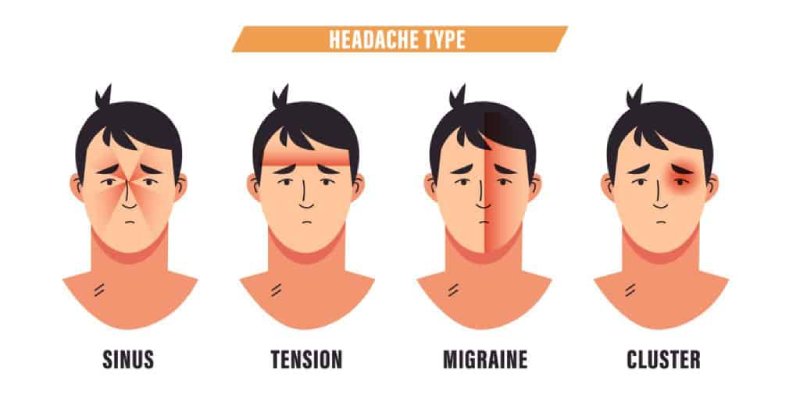What Causes Headaches? Common Triggers and Tips


Share:
Headaches are a common issue that almost everyone experiences from time to time. Understanding the various causes of headaches can help in finding the right treatment and preventing them. Here’s a look at some of the most frequent reasons for headaches and what you can do about them:
Stress and anxiety are major contributors to tension-type headaches. Pressures from work, personal issues, or daily stressors can trigger these headaches. Techniques for managing stress, such as relaxation exercises and mindfulness, can help alleviate this type of headache.
Inadequate sleep, irregular sleep patterns, or sleep disorders like sleep apnea can lead to headaches. Improving your sleep habits by maintaining a regular sleep schedule and ensuring quality rest can prevent headache issues related to sleep.
Extended periods of looking at screens, reading, or other activities that strain the eyes can cause headaches. Taking regular breaks from screen time and ensuring proper lighting while working or reading can reduce eye strain and prevent headaches.
Not drinking enough water can lead to dehydration, which is a common cause of headaches. Staying well-hydrated throughout the day is crucial for preventing headaches related to dehydration.
Skipping meals or irregular eating can cause a drop in blood sugar levels, leading to headaches. Eating regular, balanced meals and healthy snacks can help maintain stable blood sugar levels and prevent hunger-induced headaches.
Migraines are characterized by severe, often one-sided pain and can be triggered by various factors such as light, sound, and certain foods. Managing migraines involves identifying and avoiding triggers and using prescribed medications as directed.
Inflammation of the sinuses (sinusitis) or upper respiratory infections can cause pressure and pain in the face, leading to headaches. Treating sinus infections and addressing respiratory issues can help alleviate these headaches.
Hormonal fluctuations, such as those related to menstruation, pregnancy, or menopause, can trigger headaches in some individuals. Managing hormonal changes with medical guidance can help reduce hormone-related headaches.
Some medications, especially overuse of painkillers, can cause headaches. If you suspect your medication might be causing headaches, consult with your healthcare provider to adjust your treatment plan.
In rare cases, headaches may indicate more serious health issues, such as brain tumors or high blood pressure. If you experience severe or persistent headaches, it’s important to seek professional medical evaluation to rule out serious conditions.
Understanding the underlying causes of your headaches and taking appropriate measures can greatly improve your quality of life. Keeping track of your symptoms and consulting with a healthcare professional when needed is essential for effective headache management.
Wishing you good health!
This post provides an overview of the common causes of headaches and practical tips for addressing each one.
administrator